Prophet Muhammad’s Political Philosophy - Part I: A Bridge Between Classical and Modern Theories
PART 1
Abstract
Prophet Muhammad’s ﷺ political philosophy presents a profound integration with both classical and modern political theories. The State of Nature Theory, proposed by Hobbes, Locke, and Rousseau, asserts that without political authority, humans suffer conflict and chaos. Prophet Muhammad (PBUH) pre-emptively addressed this issue by emphasizing the requirement of appointed leadership (Ameer), as evidenced by his instruction for leadership even within small traveling groups, thereby preventing disorder. His Constitution of Medina exemplifies the Social Contract Theory, formalizing shared rights and duties among Muslims, Jews, and pagans, thereby institutionalizing principles of equality, justice, and mutual responsibility. The Prophet’s adherence to the Rule of Law is strikingly reflected in his impartial approach to justice, notably declaring that even his own daughter would not be exempt from punishment if guilty of theft. His leadership model also incorporated consultation (Shura) and public accountability; practices continued by the Khulafa Al-Rashidun. Furthermore, his emphasis on Pluralism is evident in agreements that promoted peaceful coexistence and respect for diverse beliefs. This comparative analysis illustrates how Prophet Muhammad’s ﷺ governance principles resonate with key political concepts, offering enduring insights into modern political thought and strategies of effective governan
Introduction
Prophet Muhammad ﷺ stands as an immensely effective figure in the entire human history, revered not only as the final messenger of Allah by his Muslim disciples but also as a remarkable statesman and leader by the world leaders. Michael H. Hart feels confident to mention the reason why did he put Prophet Muhammad at the top of the list of 100 most influential personalities across the world. He confessed ‘furthermore, Muhammad, unlike Jesus, was a secular as well as a religious leader. In fact, as the driving force behind the Arab conquests, he may well rank as the most influential political leader of all time.’[1] Moreover, Muhammad ﷺ was a secular leader in addition to a religious one, unlike Jesus. As the impetus for the Arab conquests, he might even be considered the most consequential political figure in history. It is possible to argue that many significant historical occurrences were predetermined and would have happened even in the absence of the specific political figure who led them. For instance, even if Simon Bolivar had never been born, the colonies in South America would have most likely succeeded in gaining their independence from Spain. The Arab conquests, however, do not fit this description. Muhammad was the first of his kind, and there is no reason to think that the conquests would not have been made possible without him.
The only similar conquests in human history were carried out by the Mongols in the thirteenth century, mostly as a result of Genghis Khan's influence. The only lands that the Mongols currently occupy are those that they possessed before Genghis Khan, despite the fact that their conquests—while vaster than the Arabs'—did not prove to be durable. In the 20th century, significant contributions were made by Western scholars toward correcting the long-standing misrepresentation of Prophet Muhammad ﷺ and Islam in the West. Among these, James Kritzeck, Albert Hourani, and William Montgomery Watt stand out for their integrity and balanced portrayal of the Prophet’s political and spiritual leadership. James Kritzeck’s Peter the Venerable and Islam (1964) offered a rigorous critique of the inaccuracies in Peter the Venerable’s Summa, a medieval text that misrepresented the Prophet's mission. Kritzeck exposed four clear factual errors in Peter's work, including the false claims that Muhammad ﷺ used political ambition and the sword before his prophethood. Kritzeck asserts that “the idea that Islam as a religion was ‘founded’ to realize Muhammad’s ﷺ political ambitions must now be discarded,” thus challenging the traditional Western interpretation that Islam was spread by the sword.[2] [3]
Albert Hourani, a Lebanese Catholic scholar, also played a crucial role in fostering understanding between Islam and the West. His works, Islam in European Thought (1991) and Europe and the Middle East, emphasized the need for coexistence and debunked many negative stereotypes about Arabs and Islam. Hourani’s scholarship, largely free from bias, contributed to a more nuanced portrayal of Islam’s history and the Prophet’s leadership, helping to bridge the cultural divide between East and West. William Montgomery Watt, a Scottish Episcopal priest and scholar, provided one of the most comprehensive reassessments of the Prophet’s life in his seminal works Muhammad at Mecca (1953) and Muhammad ﷺ at Medina (1956). Watt argued against the vilification of Muhammad ﷺ, urging Western audiences to understand the Prophet’s political leadership within its historical context. He noted, “To spend some time looking at the various ways in which through the centuries our Western world has thought of Muhammad ﷺ and conceived his significance,” calling for a re-evaluation of the Prophet’s message, one based on fairness and accuracy. Together, these scholars challenged centuries-old distortions, advocating for a more accurate, respectful understanding of the Prophet Muhammad ﷺ, his political leadership, and the religion he founded.[4]
His leadership was comprehensive, dynamic, and grounded in an unshakable moral and spiritual foundation. In both his personal and public life, Prophet Muhammad ﷺ embodied the principles of justice, compassion, and wisdom, serving as a paragon of virtue and an exemplary guide for human conduct. While many recognize his role as a religious leader, his contributions to political leadership are equally significant. His approach to governance, conflict resolution, and social cohesion offers timeless lessons that resonate with both classical and modern political thought. In this paper, we examine Prophet Muhammad’s ﷺ political philosophy through the lens of classical and modern political theories, focusing on key concepts like the State of Nature, Social Contract, Rule of Law, and Pluralism. By analysing how the Prophet ﷺ applied these principles in his leadership, we explore how his governance model prefigures and enhances the ideas put forth by thinkers such as Hobbes,[5] Locke[6], Rousseau[7], and others[8] [9] [10] [11]. Prophet Muhammad ﷺ unified the Arabian Peninsula, established a state in Madinah, and conducted successful military campaigns, but his real political genius was reflected in the realm of morality, justice, and spirituality. His leadership demonstrated balance in both weakness and strength, embodying the principle that political authority must be grounded in ethical conduct.
The Paragon of Political Leadership[12] [13]
Prophet Muhammad ﷺ demonstrated political acumen long before receiving prophethood, as evidenced by his resolution of a major tribal dispute over the placement of the Black Stone in the Kaaba. This event, often overlooked in discussions of his political legacy, highlights his wisdom, conflict-resolution skills, and ability to unify diverse factions. By involving all tribes in the process, Prophet Muhammad ﷺ set a precedent for inclusivity and collaborative decision-making, which later became cornerstones of his governance model. This early act of diplomacy reflects core principles found in modern political theories, such as Locke’s emphasis on equality and Rousseau’s belief in collective will. Upon receiving prophethood, Prophet Muhammad’s ﷺ leadership evolved into a comprehensive model that encompassed religious, social, and political dimensions. His leadership style was defined by consultation (Shura), accountability, and a strong commitment to justice. He maintained a delicate balance between spiritual and temporal authority, recognizing the need for governance systems that ensured both material well-being and moral integrity.
In the 20th century, Western scholars such as James Kritzeck, William Montgomery Watt, and Albert Hourani reevaluated Prophet Muhammad ﷺ as a paragon of political leadership. Kritzeck’s analysis of Peter the Venerable’s Summa debunked the misconception that Muhammad’s ﷺ mission was politically driven. Watt’s studies emphasized a balanced view of the Prophet’s leadership, and Hourani’s works called for better cross-cultural understanding. An exemplary event reflecting the Prophet Muhammad ﷺ as a model of political leadership is the Treaty of Hudaybiyyah (628 CE)[14]. This treaty, negotiated between the Muslims and the Quraysh tribe of Mecca, initially appeared unfavourable to the Muslims. Despite the apparent disadvantages, the Prophet's strategic foresight and commitment to peace led to significant long-term benefits, including the spread of Islam and the establishment of a precedent for diplomatic negotiations. The treaty showcased his adeptness in political strategy, emphasizing patience, diplomacy, and the broader vision of achieving enduring peace and unity.[15]
The State of Nature from Islamic Perspective and the Need for Political Authority[16]
Classical political theorists such as Thomas Hobbes, John Locke, and Jean-Jacques Rousseau are known for their conceptions of the State of Nature—a condition in which humans live without political authority. Hobbes argued that, in the absence of government, life would be “nasty, brutish, and short,” as humans would be in a perpetual state of conflict over resources. Locke, more optimistic, believed that humans in the State of Nature possess natural rights, but that political authority is needed to protect these rights. Rousseau, on the other hand, saw the State of Nature as a period of primitive peace that became corrupted by the development of private property and social inequality.[17]
Prophet Muhammad ﷺ pre-empted the need for political authority in his teachings, emphasizing the necessity of appointed leadership (Ameer) to prevent discord and maintain social order. His instruction for even small groups of travellers to appoint a leader reflects an understanding of the human need for governance, organization, and authority. This emphasis on leadership aligns with the political philosophies of Hobbes and Locke, who recognized the potential for disorder in human society without governance.[18] However, unlike Hobbes’ vision of an authoritarian Leviathan, Prophet Muhammad’s ﷺ leadership was rooted in morality, consultation, and justice, offering a more humane and balanced approach to political authority.[19]
Social Contract Theory from Islamic Perspective and the Constitution of Medina[20]
The Social Contract Theory, most notably articulated by Hobbes, Locke, and Rousseau, posits that political authority is derived from an implicit contract between rulers and the ruled. This contract guarantees the protection of individual rights in exchange for the surrender of certain freedoms. Prophet Muhammad’s ﷺ Constitution of Medina (Ṣaḥīfat al-Madīnah) provides one of the earliest examples of a social contract in history. This document established a unified framework of governance for the diverse communities in Medina, including Muslims, Jews, and pagans, and codified the mutual obligations of all citizens. The Constitution of Medina ensured equality, mutual responsibility, and peaceful coexistence among its members, reflecting many of the principles that would later be elaborated in modern political theory. Unlike Hobbes’ vision of a social contract grounded in fear of conflict, Prophet Muhammad’s ﷺ social contract was rooted in mutual respect, justice, and moral obligation. The Constitution of Medina upheld the rights of all citizens, regardless of religious or ethnic background, and established mechanisms for conflict resolution through consultation and shared governance.
This approach highlights the Prophet’s ﷺ diplomatic skills and his ability to create inclusive and just political structures. In Madinah, Prophet Muhammad ﷺ established a state built on the principles of justice, equality, and consultation. Regardless of religion or social status, everyone was subject to the same laws, and no group or family received special privileges. One clear demonstration of this impartial justice was the case of Tu’mah ibn Abraq, a Muslim who stole an armour and falsely accused a Jewish citizen. In response, Allah revealed verses from Surat An-Nisaa’[21], condemning such injustice. As a result, the Jewish man was exonerated, and Tu’mah was found guilty, showcasing the Prophet’s firm commitment to justice and human rights for all, including non-Muslims living under his rule.[22]
Beyond justice, the Prophet ﷺ took a comprehensive approach to leadership, addressing the spiritual, economic, and political needs of his community. He was deeply concerned about the economic well-being of his people, securing their future through treaties and alliances with various tribes. His diplomacy was rooted in morality and honesty, setting an example for the world on how to conduct fair and ethical international relations. Every treaty he signed was honoured, and he ensured the protection and defence of his people. Though the Prophet ﷺ prioritized peace, he was always aware of the surrounding threats. While he never initiated conflict, when attacked, he responded with firmness and decisiveness. His leadership emphasized peaceful coexistence and harmonious relations, preparing his people both spiritually and strategically for any challenges that arose. His model of leadership demonstrated a balance between moral principles and pragmatic governance, ensuring the prosperity and safety of the state.
About the Author:
Nairul SK is a PG research scholar at Darul Huda Islamic University, (Dept. of Islamic Economics and Finance), Kerala, India, and B.A Political Science Hons Student at IGNOU. His research areas include Islamic Economics and Finance, Political Science, Islamic Studies, the Study of Organizational Behavior, and Islamic Psychology.
Bibliography
Abdel Razek, A., Loutfi, M., & Filali-Ansary, A. (2013). Islam and the foundations of political power (Vol. 2, p. 144). eCommons@AKU. http://ecommons.aku.edu/uk_ismc_series_intranslation/1
Ahmad, E. K. (2015, January 20). من أخلاق معركة بدر الكبرى: الكرم. مقالات متعلقة. https://www.alukah.net/sharia
Berlin, I. (1958). Two concepts of liberty. Oxford University Press.
Bowering, G. (Ed.). (2015). Muhammad. In G. Bowering (Ed.), Islamic political thought: An introduction. Princeton University Press. https://doi.org/10.23943/princeton/9780691164823.003.0010
Farman, M., & Yucel, S. (2023). Rereading the Hudaybiyya treaty: With special reference to Ibn ʿUmar’s role in Fitan. Religions, 14(5), 666. https://doi.org/10.3390/rel14050666
Haris, M. (n.d.). Prophet Muhammad (PBUH) as a political thinker. ALJUMUAH. Retrieved September 10, 2024, from https://www.aljumuah.com/prophet-muhammad-as-a-political-thinker/
Hart, M. H. (1992). The 100: A ranking of the most influential persons in history (Rev. ed.). Citadel Press.
Hobbes, T. (1651). Leviathan (Chapters 13-15; Chapter 14; Chapter 16). Andrew Crooke.
Ibn Hibban. (n.d.). Kitāb al-Sīrah al-Nabawiyyah wa Akhbār al-Khulafāʾ. Wikisource. Retrieved September 10, 2024, from https://ar.wikisource.org/wiki
Locke, J. (1689). Two treatises of government (Book I, Chapters 3-9; Book II, Chapters 8-9; Book II, Chapter 9). Awnsham Churchill.
Machiavelli, N. (1532). The prince (pp. 15-29, 63-79, 93-107). Translated by W. K. Marriott. A. A. Knopf. (Original work published 1532).
Marx, K. (1867). Capital: Critique of political economy (Part I). Otto Meissner Verlag.
Mill, J. S. (1859). On liberty (Chapter 1; Chapters 2-3). John W. Parker and Son.
Rawls, J. (1971). A theory of justice (Chapters 1-3; Part III). Harvard University Press.
Rousseau, J.-J. (1762). The social contract (Book I, Chapter 1; Book I, Chapter 6; Book II, Chapter 1; Book IV). Marc-Michel Rey.
Siddiqi, M. H. (n.d.). Prophet Muhammad (PBUH) as a political leader. IslamOnline. https://islamonline.net/en/prophet-muhammad-pbuh-as-a-political-leader/
Talib, A. (1991, August). The Islamic political theory of Muhammad Baqir al-Sadr of Iraq. ICIT Digital Library. https://www.researchgate.net/publication/315099311_The_Islamic_Political_Theory_of_Muhammad_Baqir_Al-Sadr_of_Iraq
The Battle of Badr and the Issue of the Captive – II. (2009, June 4). Islam.net (English). https://islamweb.net/en/article/152052/the-battle-of-badr-and-the-issue-of-the-captives-ii
Watt, W. M. (1993). The Prophet Muhammad and the rise of Islam (pp. 100-200). Oxford University Press.
Reference
[1] Hart, M. H. (1992). The 100: A ranking of the most influential persons in history (Rev. ed.). Citadel Press.
[2] Watt, W. M. (1993). The Prophet Muhammad and the rise of Islam. Oxford University Press. p 100-150.
[3] Prophet Muhammad in recent Western writings. (n.d.). ISLAM. Road2Islam. Retrieved on 10 September 2024 http://www.road2islam.in
[4] Watt, W. M. (1993). The Prophet Muhammad and the rise of Islam. Oxford University Press. p 100-150.
[5] Hobbes, T. (1651). Leviathan (Chapters 13-15; Chapter 14; Chapter 16). Andrew Crooke.
[6] Locke, J. (1689). Two treatises of government (Book I, Chapters 3-9; Book II, Chapters 8-9; Book II, Chapter 9). Awnsham Churchill.
[7] Rousseau, J.-J. (1762). The social contract (Book I, Chapter 1; Book I, Chapter 6; Book II, Chapter 1; Book IV). Marc-Michel Rey.
[8] Mill, J. S. (1859). On liberty (Chapter 1; Chapters 2-3). John W. Parker and Son.
[9] Marx, K. (1867). Capital: Critique of political economy (Part I). Otto Meissner Verlag.
[10] Berlin, I. (1958). Two concepts of liberty. Oxford University Press.
[11] Rawls, J. (1971). A theory of justice (Chapters 1-3; Part III). Harvard University Press.
[12] Abdel Razek, A., Loutfi, M., & Filali-Ansary, A. (2013). Islam and the foundations of political power (Vol. 2, p. 144). eCommons@AKU. p 144. http://ecommons.aku.edu/uk_ismc_series_intranslation/1
[13] Haris, M. (n.d.). Prophet Muhammad (PBUH) as a political thinker. ALJUMUAH. Retrieved September 10, 2024, from https://www.aljumuah.com/prophet-muhammad-as-a-political-thinker/
[14] Farman, M., & Yucel, S. (2023). Rereading the Hudaybiyya treaty: With special reference to Ibn ʿUmar’s role in Fitan. Religions, 14(5), 666. https://doi.org/10.3390/rel14050666
[15] Bowering, Gerhard (ed.), 'Muhammad', in Gerhard Bowering (ed.), Islamic Political Thought: An Introduction (Princeton, NJ, 2015; online edn, Princeton Scholarship Online, 19 Oct. 2017), https://doi.org/10.23943/princeton/9780691164823.003.0010, accessed 10 Sept. 2024.
[16] Haris, M. (n.d.). Prophet Muhammad (PBUH) as a political thinker. ALJUMUAH. Retrieved September 10, 2024, from https://www.aljumuah.com/prophet-muhammad-as-a-political-thinker/
[17] Hobbes, T. (1651). Leviathan (Chapters 13-15; Chapter 14; Chapter 16). Andrew Crooke.
[18] Machiavelli, N. (1532). The prince (pp. 15-29, 63-79, 93-107). Translated by W. K. Marriott. A. A. Knopf. (Original work published 1532).
[19] Hobbes, T. (1651). Leviathan (Chapters 13-15; Chapter 14; Chapter 16). Andrew Crooke.
[20] Haris, M. (n.d.). Prophet Muhammad (PBUH) as a political thinker. ALJUMUAH. Retrieved September 10, 2024, from https://www.aljumuah.com/prophet-muhammad-as-a-political-thinker/
[21] Al-Quran 4:110-112
[22] Siddiqi, M. H. (n.d.). Prophet Muhammad (PBUH) as a political leader. IslamOnline. https://islamonline.net/en/prophet-muhammad-pbuh-as-a-political-leader/
Disclaimer
The views expressed in this article are the author’s own and do not necessarily mirror Islamonweb’s editorial stance.

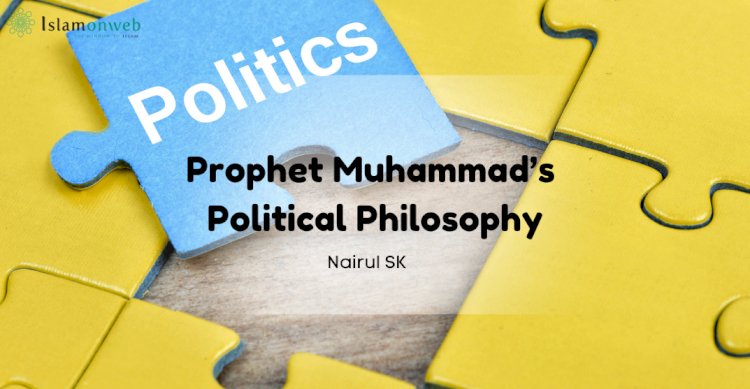


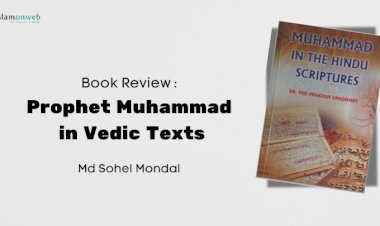
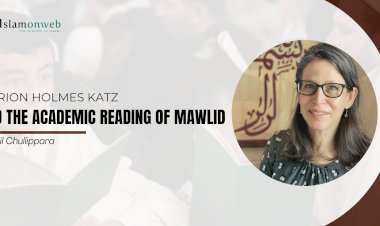
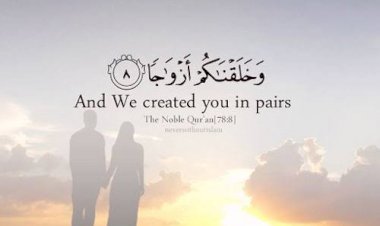
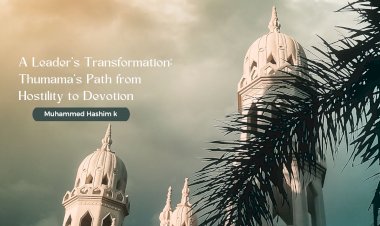
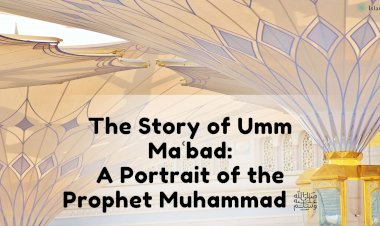













Leave A Comment